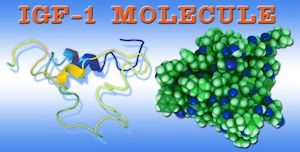Introduction to Growth Hormone Deficiency and Diabetes
Growth hormone deficiency (GHD) is a medical condition characterized by the inadequate secretion of growth hormone from the pituitary gland. This deficiency can manifest in various symptoms, including stunted growth in children and a range of metabolic disturbances in adults. When GHD coexists with diabetes, managing the condition becomes more complex due to the potential interactions between growth hormone replacement therapy and blood glucose regulation. Genotropin, a recombinant human growth hormone, has been a subject of interest in the medical community for its potential in managing GHD in diabetic patients.
Understanding Genotropin and Its Mechanism
Genotropin is a biosynthetic growth hormone that mimics the action of the naturally occurring hormone. It is administered via subcutaneous injection and works by stimulating growth, cell reproduction, and regeneration in humans. For diabetic patients, the introduction of an exogenous growth hormone can pose challenges, as growth hormone is known to affect insulin sensitivity and glucose metabolism.
Clinical Efficacy of Genotropin in Diabetic Patients
Several clinical studies have been conducted to evaluate the efficacy of Genotropin in patients with GHD who also have diabetes. These studies have aimed to assess not only the improvement in growth and metabolic parameters but also the impact on glycemic control. The results have been promising, with many patients showing significant improvements in their growth hormone levels and overall well-being. However, the response to Genotropin can vary, and careful monitoring of blood glucose levels is essential to prevent complications.
Impact on Glycemic Control
One of the primary concerns when treating GHD in diabetic patients with Genotropin is the potential for worsening glycemic control. Growth hormone can lead to insulin resistance, which may necessitate adjustments in diabetes management. Studies have shown that while some patients may require an increase in their diabetes medication, others can maintain stable blood glucose levels with careful monitoring and management. It is crucial for healthcare providers to work closely with patients to tailor treatment plans that address both GHD and diabetes effectively.
Safety Profile and Side Effects
Genotropin is generally well-tolerated, but like any medication, it can have side effects. Common side effects include injection site reactions, headaches, and muscle or joint pain. In diabetic patients, there is an increased risk of developing hyperglycemia, which must be closely monitored. Long-term safety data suggest that with proper management, the benefits of Genotropin often outweigh the risks for patients with GHD and diabetes.
Patient Selection and Monitoring
The decision to use Genotropin in patients with GHD and diabetes should be made on a case-by-case basis, considering the individual's overall health, the severity of their GHD, and their diabetes management. Regular monitoring of growth hormone levels, blood glucose, and other metabolic parameters is essential to ensure the safe and effective use of Genotropin. Collaboration between endocrinologists and diabetologists can optimize patient outcomes and enhance the quality of life for those affected by both conditions.
Conclusion: The Role of Genotropin in Modern Medicine
Genotropin represents a valuable tool in the management of growth hormone deficiency in patients with diabetes. Its ability to improve growth and metabolic parameters, when used judiciously, can significantly enhance the quality of life for affected individuals. As research continues to evolve, the medical community remains committed to refining treatment protocols to maximize the benefits of Genotropin while minimizing potential risks. For American males facing the dual challenge of GHD and diabetes, Genotropin offers hope and a pathway to better health.
Contact Us For A Fast And Professional Response

- Genotropin's Impact on Lipid Profiles in American Men with Growth Hormone Deficiency [Last Updated On: February 24th, 2025] [Originally Added On: February 24th, 2025]
- Unveiling the Potential of Genotropin: A Comprehensive Review of Clinical Trials and Outcomes [Last Updated On: March 3rd, 2025] [Originally Added On: March 3rd, 2025]
- Exploring the Impact of Genotropin on Metabolic Health in American Adult Males [Last Updated On: March 12th, 2025] [Originally Added On: March 12th, 2025]
- Unveiling the Potential of Genotropin in Managing Idiopathic Short Stature Among American Males [Last Updated On: March 15th, 2025] [Originally Added On: March 15th, 2025]
- Unveiling the Synergy: Genotropin's Role in Treating Growth Hormone Deficiency Amidst Sleep Disorders [Last Updated On: March 16th, 2025] [Originally Added On: March 16th, 2025]
- Unveiling the Respiratory Benefits of Genotropin in Growth Hormone Deficient Males [Last Updated On: March 16th, 2025] [Originally Added On: March 16th, 2025]
- Exploring the Therapeutic Potential of Genotropin in Treating Growth Hormone Deficiency and Osteoporosis in American Males [Last Updated On: March 16th, 2025] [Originally Added On: March 16th, 2025]
- Unleashing Potential: Genotropin's Impact on Exercise Capacity in Growth Hormone Deficient American Males [Last Updated On: March 16th, 2025] [Originally Added On: March 16th, 2025]
- Unlocking the Potential of Genotropin Therapy: Overcoming Psychological Barriers in American Males [Last Updated On: March 16th, 2025] [Originally Added On: March 16th, 2025]
- Exploring the Impact of Genotropin on Bladder Function in American Males with Growth Hormone Deficiency [Last Updated On: March 16th, 2025] [Originally Added On: March 16th, 2025]
- Genotropin: Enhancing Life Quality in Adults with Childhood-Onset Growth Hormone Deficiency [Last Updated On: March 17th, 2025] [Originally Added On: March 17th, 2025]
- Genotropin's Impact on Cardiovascular Health in American Males with Growth Hormone Deficiency [Last Updated On: March 17th, 2025] [Originally Added On: March 17th, 2025]
- Genotropin's Role in Enhancing Intestinal Adaptation for Short Bowel Syndrome Treatment [Last Updated On: March 18th, 2025] [Originally Added On: March 18th, 2025]
- Genotropin Therapy Transition: From Pediatric to Adult Care for American Males [Last Updated On: March 18th, 2025] [Originally Added On: March 18th, 2025]
- Strategies to Enhance Genotropin Therapy Compliance in American Males with GHD [Last Updated On: March 19th, 2025] [Originally Added On: March 19th, 2025]
- Genotropin's Efficacy in Treating Growth Disorders in American Males: A Comprehensive Review [Last Updated On: March 19th, 2025] [Originally Added On: March 19th, 2025]
- Genotropin: Understanding Pharmacokinetics and Pharmacodynamics for Growth Hormone Deficiency Treatment [Last Updated On: March 20th, 2025] [Originally Added On: March 20th, 2025]
- Genotropin Enhances Cognitive Function in American Males with Growth Hormone Deficiency [Last Updated On: March 20th, 2025] [Originally Added On: March 20th, 2025]
- Genotropin: Enhancing Elderly Men's Vitality with Growth Hormone Therapy [Last Updated On: March 20th, 2025] [Originally Added On: March 20th, 2025]
- Genotropin: Enhancing Growth in SGA Children and Improving Quality of Life [Last Updated On: March 20th, 2025] [Originally Added On: March 20th, 2025]
- Genotropin: Revolutionizing Hypopituitarism Treatment for American Males [Last Updated On: March 21st, 2025] [Originally Added On: March 21st, 2025]
- Debunking Myths: Understanding Genotropin Therapy for American Males [Last Updated On: March 21st, 2025] [Originally Added On: March 21st, 2025]
- Genotropin Enhances Immune Function in Growth Hormone Deficient American Males [Last Updated On: March 22nd, 2025] [Originally Added On: March 22nd, 2025]
- Genotropin Therapy for American Males: Benefits, Side Effects, and Management Strategies [Last Updated On: March 22nd, 2025] [Originally Added On: March 22nd, 2025]
- Genotropin: Effective Treatment for Growth Hormone Deficiency Due to Genetic Mutations [Last Updated On: March 22nd, 2025] [Originally Added On: March 22nd, 2025]
- Genotropin Therapy: Enhancing Growth in American Males with GHD [Last Updated On: March 23rd, 2025] [Originally Added On: March 23rd, 2025]
- Genotropin: Cost-Effective GHD Treatment for American Males [Last Updated On: March 23rd, 2025] [Originally Added On: March 23rd, 2025]
- Genotropin: Enhancing Growth and Quality of Life in Cystic Fibrosis Patients with GHD [Last Updated On: March 23rd, 2025] [Originally Added On: March 23rd, 2025]
- Genotropin's Efficacy in Treating GHD Post-TBI in American Males: A Review [Last Updated On: March 24th, 2025] [Originally Added On: March 24th, 2025]
- Genotropin Enhances Skin Health in American Men with Growth Hormone Deficiency [Last Updated On: March 24th, 2025] [Originally Added On: March 24th, 2025]
- Genotropin's Impact on Growth Hormone Deficiency in American Males with Down Syndrome [Last Updated On: March 24th, 2025] [Originally Added On: March 24th, 2025]
- Genotropin Therapy: Enhancing Growth and Well-being in American Males [Last Updated On: March 24th, 2025] [Originally Added On: March 24th, 2025]
- Genotropin Therapy: Long-Term Outcomes and Care for American Males with GHD [Last Updated On: March 24th, 2025] [Originally Added On: March 24th, 2025]
- Genotropin: A Vital Treatment for Growth Hormone Deficiency from Pituitary Tumors in Males [Last Updated On: March 24th, 2025] [Originally Added On: March 24th, 2025]
- Genotropin: A Vital Treatment for Growth Hormone Deficiency in American Males [Last Updated On: March 25th, 2025] [Originally Added On: March 25th, 2025]
- Genotropin's Impact on Growth in American Males with Sickle Cell and GHD [Last Updated On: March 25th, 2025] [Originally Added On: March 25th, 2025]
- Genotropin's Impact on Emotional Well-being in American Males with GHD [Last Updated On: March 25th, 2025] [Originally Added On: March 25th, 2025]
- Genotropin's Multifaceted Benefits for American Males with Turner Syndrome [Last Updated On: March 25th, 2025] [Originally Added On: March 25th, 2025]
- Genotropin: Managing Growth Hormone Deficiency in American Males Post-Radiation Therapy [Last Updated On: March 25th, 2025] [Originally Added On: March 25th, 2025]
- Genotropin Enhances Sleep Quality in American Men with Growth Hormone Deficiency [Last Updated On: March 25th, 2025] [Originally Added On: March 25th, 2025]
- Genotropin: Restoring Growth and Hope for Childhood Cancer Survivors [Last Updated On: March 26th, 2025] [Originally Added On: March 26th, 2025]
- Genotropin's Impact on Reproductive Health in American Males with GHD [Last Updated On: March 26th, 2025] [Originally Added On: March 26th, 2025]
- Genotropin: Enhancing Body Composition and Health in American Males with GHD [Last Updated On: March 26th, 2025] [Originally Added On: March 26th, 2025]
- Genotropin's Impact on Dental Health in American Males with Growth Hormone Deficiency [Last Updated On: March 26th, 2025] [Originally Added On: March 26th, 2025]
- Genotropin's Efficacy in Treating GHD and RA in American Males: Benefits and Considerations [Last Updated On: March 27th, 2025] [Originally Added On: March 27th, 2025]
- Genotropin Enhances Exercise Capacity in American Males with Growth Hormone Deficiency [Last Updated On: March 27th, 2025] [Originally Added On: March 27th, 2025]
- Genotropin Therapy Transition Strategies for American Males with Growth Hormone Deficiency [Last Updated On: March 28th, 2025] [Originally Added On: March 28th, 2025]
- Genotropin's Potential Benefits on Hearing in American Boys with Growth Hormone Deficiency [Last Updated On: March 28th, 2025] [Originally Added On: March 28th, 2025]
- Genotropin's Role in Managing Growth Hormone Deficiency in HIV-Positive American Males [Last Updated On: March 28th, 2025] [Originally Added On: March 28th, 2025]
- Genotropin Therapy for American Males: Nutritional Strategies for Optimal Growth and Health [Last Updated On: March 28th, 2025] [Originally Added On: March 28th, 2025]
- Strategies to Enhance Genotropin Therapy Adherence in American Adolescent Males [Last Updated On: March 28th, 2025] [Originally Added On: March 28th, 2025]
- Genotropin Therapy: Enhancing Life Quality for American Males with Growth Hormone Deficiency [Last Updated On: March 28th, 2025] [Originally Added On: March 28th, 2025]
- Genotropin's Impact on American Males with GHD and ASD: Efficacy and Considerations [Last Updated On: March 28th, 2025] [Originally Added On: March 28th, 2025]
- Genotropin Therapy for GHD in American Males with Epilepsy: Benefits and Risks [Last Updated On: March 28th, 2025] [Originally Added On: March 28th, 2025]
- Genotropin's Impact on Vision in American Males with Growth Hormone Deficiency [Last Updated On: March 28th, 2025] [Originally Added On: March 28th, 2025]
- Genotropin's Efficacy in Treating GHD in American Males with Asthma [Last Updated On: March 29th, 2025] [Originally Added On: March 29th, 2025]
- Genotropin: Advancing Treatment for GHD and Thyroid Disorders in American Men [Last Updated On: March 29th, 2025] [Originally Added On: March 29th, 2025]
- Overcoming Psychological Barriers to Genotropin Therapy in American Males [Last Updated On: March 30th, 2025] [Originally Added On: March 30th, 2025]
- Genotropin's Impact on Hair Growth in American Men with Growth Hormone Deficiency [Last Updated On: March 30th, 2025] [Originally Added On: March 30th, 2025]
- Genotropin's Impact on Kidney Function in American Males with Growth Hormone Deficiency [Last Updated On: March 31st, 2025] [Originally Added On: March 31st, 2025]
- Genotropin: Managing Growth Hormone Deficiency in Obese American Males [Last Updated On: April 2nd, 2025] [Originally Added On: April 2nd, 2025]
- Genotropin: A Promising Treatment for Growth Hormone Deficiency and Chronic Fatigue Syndrome [Last Updated On: April 2nd, 2025] [Originally Added On: April 2nd, 2025]
- Genotropin Therapy Guide for American Males with Growth Hormone Deficiency [Last Updated On: April 5th, 2025] [Originally Added On: April 5th, 2025]
- Genotropin Therapy: Enhancing Communication for American Males' Health Outcomes [Last Updated On: April 7th, 2025] [Originally Added On: April 7th, 2025]
- Genotropin's Impact on Lung Function in American Males with Growth Hormone Deficiency [Last Updated On: April 7th, 2025] [Originally Added On: April 7th, 2025]
- Genotropin's Efficacy in Treating GHD and Fibromyalgia in American Males [Last Updated On: April 8th, 2025] [Originally Added On: April 8th, 2025]
- Genotropin's Impact on Liver Function in American Men with Growth Hormone Deficiency [Last Updated On: April 8th, 2025] [Originally Added On: April 8th, 2025]
- Genotropin: Treating Growth Hormone Deficiency and Anemia in American Males [Last Updated On: April 9th, 2025] [Originally Added On: April 9th, 2025]
- Genotropin Enhances Quality of Life in MS Patients with Growth Hormone Deficiency [Last Updated On: April 9th, 2025] [Originally Added On: April 9th, 2025]
- Genotropin's Impact on Joint Health in American Males with Growth Hormone Deficiency [Last Updated On: April 10th, 2025] [Originally Added On: April 10th, 2025]
- Genotropin Therapy for American Males: Ethical Considerations and Access [Last Updated On: April 11th, 2025] [Originally Added On: April 11th, 2025]
- Genotropin's Efficacy in Treating GHD and Osteoporosis in American Males [Last Updated On: April 12th, 2025] [Originally Added On: April 12th, 2025]
- Genotropin: Tailored Treatment for GHD and Hypertension in American Males [Last Updated On: April 12th, 2025] [Originally Added On: April 12th, 2025]
- Overcoming Cultural Barriers to Genotropin Therapy in American Males [Last Updated On: April 13th, 2025] [Originally Added On: April 13th, 2025]
- Genotropin's Dual Benefits: Treating GHD and Migraines in American Males [Last Updated On: April 15th, 2025] [Originally Added On: April 15th, 2025]
- Genotropin's Impact on Digestive Health in American Males with Growth Hormone Deficiency [Last Updated On: April 15th, 2025] [Originally Added On: April 15th, 2025]
- Genotropin: Treating Growth Hormone Deficiency and Sleep Disorders in American Males [Last Updated On: April 16th, 2025] [Originally Added On: April 16th, 2025]
- Genotropin: Treating Growth Hormone Deficiency and Anxiety in American Males [Last Updated On: April 16th, 2025] [Originally Added On: April 16th, 2025]
- Genotropin: Treating Growth Hormone Deficiency and Depression in American Males [Last Updated On: April 16th, 2025] [Originally Added On: April 16th, 2025]
- Genotropin's Impact on Reproductive Health in American Women with GHD: Benefits and Partner Considerations [Last Updated On: April 16th, 2025] [Originally Added On: April 16th, 2025]

















